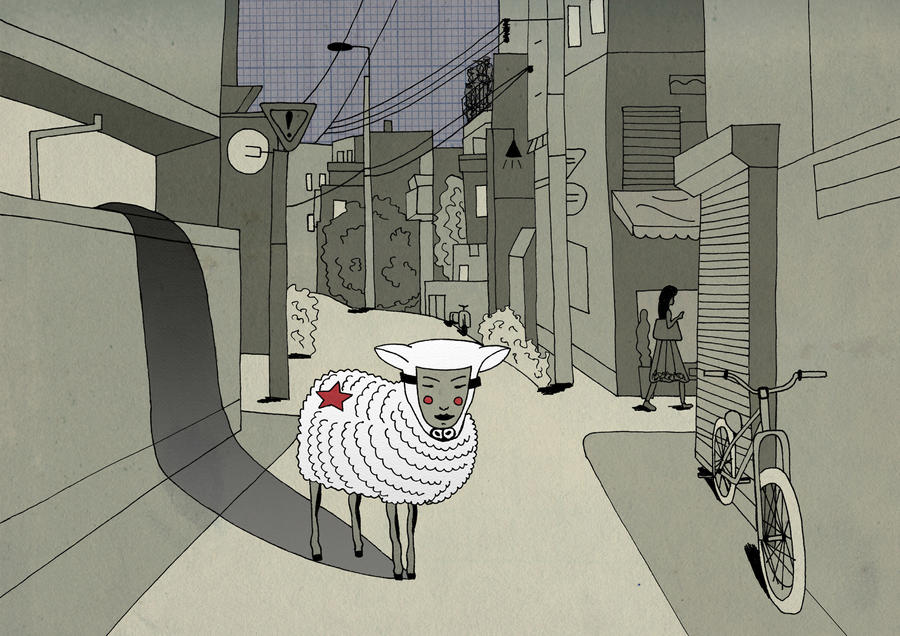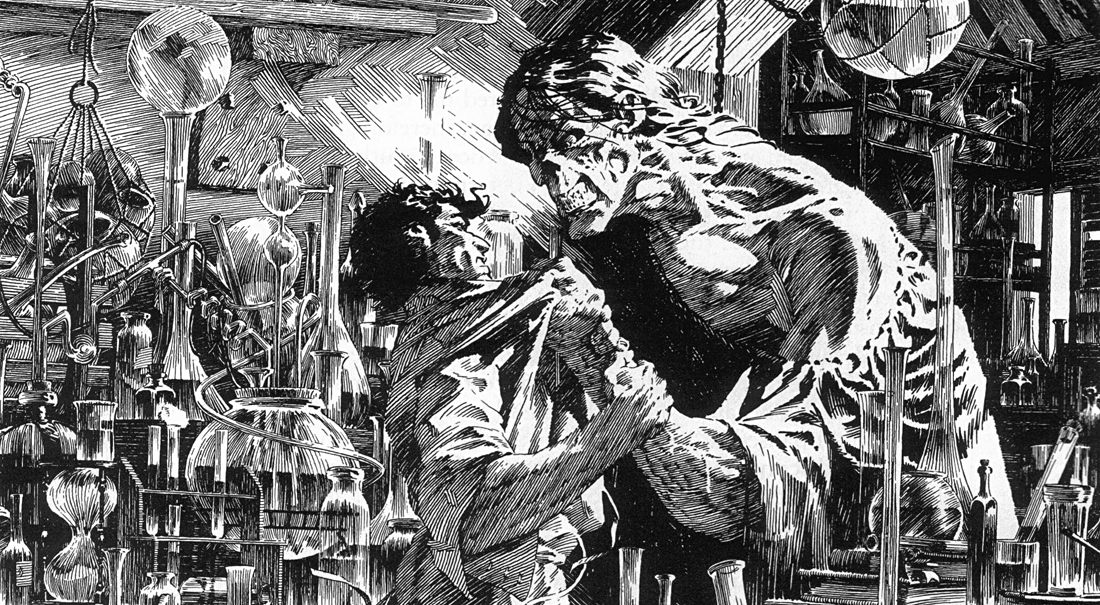Saturday, August 27, 2016
Week Three: A Wild Sheep Chase
Upon the first impression, A Wild Sheep Chase seemed like an average story about an average guy dealing with middle age and existential crises. Yet even though it is a "ghost" story, the world and characters that Murakami builds seem very rooted in reality. The narrator's day-to-day conversations are scattered frequently throughout the novel, embellishing his narration with reminders that he is a normal person leading a normal life. Up until the narrator is called upon this wild sheep chase, he is shown to hold a job, have trouble with his marriage, and have a few past relationships- all in all, a normal man. He isn't even given a full name, like many of the other characters in his life. However, what I found interesting is that even with all this realistic world building and development, Murakami spins a tale about a supernatural sheep, whose influence has existed since the beginning of time. Eventually, the mood of the novel moves from one of realism to one of uncanniness and surreality, as more about this sheep is revealed. Having these two very different sides of the world side by side presents a very captivating premise. It feels as if the narrators "adventures" could really happen to anybody, even me. Even with the supernatural aspects of the novel, I felt as if Murakami's world was palpable and that I was immersed in it. I'm pulled in to the plot by the realist interactions of the protagonist and the small details of his life. I loved all the effort put into building I's personality and past, and how it all cumulated in his subsequent sheep chase.
Tuesday, August 23, 2016
Week Two: Interview with the Vampire
The classic vampire story has come a long way since the days of Dracula and the European vampires of old. Contemporary vampire lore has transformed the life stealing blood sucker into a creature with human relationships and even human values. However, the essence of the vampire has not changed. The foundational idea of vampires is that they are still creatures who take and steal from others, sometimes "corrupting" them to become vampires just like them. But in a modern setting, what the vampire steals may not always be literal blood, and they don't need to have fangs and superhuman abilities to be a "vampire". Humans can also exhibit "vampiric" traits by stealing other people's happiness, by feeding on their misfortune, or just leeching off of their property, instead of blood. Anne Rice, however, still writes her characters as literal vampires, but exhibiting human traits and thought processes. Interview with the Vampire explores the relationships formed by these vampires, and the consequences of their relationships when immortality and moral dilemma are thrown into the mix.
To Louis, our protagonist, Lestat had become a vampire in the truest sense. He took from Louis his humanity, his money, and-for a period of time- his freedom. Not only did he suck Louis's blood, he also sucked Louis emotionally, forcing Louis to stay with him out of guilt and necessity while leeching off of his money and land as well. Yes, he was a traditional blood-sucking vampire, but he was also a vampire in the sense that he sucked Louis's livelihood, fortune, and freedom. However, he also severely depended on Louis in order to sustain his lifestyle. Unable to handle money wisely, and desperate for companionship, Lestat relied on Louis for both. Just like a traditional vampire, who depends on blood for life, Lestat fed on Louis's wealth and skills for life. Louis was the blood upon which Lestat sustained his life (other than the literal blood which he also fed on). As a result, Louis felt emotionally drained and constantly desires to leave Lestat. Anne Rice has thus written a dynamic where the "vampire" not only sucks blood, but exhibits human "vampiric" traits such as being a manipulative person and leeching off of others.
Sunday, August 21, 2016
Week One: Frankenstein
The imagery of nature is a powerful motif in Mary Shelley's Frankenstein, and is almost a mocking presence to Victor, who strives so earnestly to to imitate it, artificially creating life in a vain attempt to mimic nature's effortless beauty. The picturesque scenery of Switzerland is always present, sometimes giving Victor a false sense of happiness during trying times. However, it acts more frequently as a moment of rest for the audience, so that the novel isn't a continuous stream of depressing events one after another. Instead, there is always peace before the storm, a period of calm before the characters are thrown into turmoil, creating a story that repeatedly raises and drops the character's- and the audience's- emotions. These "calms before the storm" occur often throughout the novel, and are usually achieved through detailed descriptions of nature, evoking its sublime power. For instance, when Victor is returning to Geneva after hearing news of William, he travels through a breathtaking landscape of placid waters and snowy peaks, with Shelley not sparing a single detail of the grand splendor of his surroundings. In this environment, even our melodramatic hero notes a feeling of peace washing over him. This journey being framed by the beautiful foliage of nature serves as a period of respite from the terrible events preceding and immediately following the journey. It is the calm before a literal storm which, of course, eventually descends rapidly and without warning upon Dr. Frankenstein, once again returning him to a state of despair.
In other instances, the beautiful scenery of Switzerland acts as an ironic backdrop to Victor's state of mind and his experimentations. The vivid imagery of the landscape only highlights the stark contrast between natural life and the life which Victor created in a poor attempt to emulate it. His experiments only succeed in making a cheap, failed imitation of life, his surroundings forever a reminder of his failure. Thus, Shelley would often paint a lush picture Switzerland, teeming with natural charm and effortless beauty, only to have Victor wallowing in misery amid the fresh blooming flowers. The contrast between the beauty of the landscape and the dark thoughts of Victor conveys to the audience the pitiful struggle of man against nature and puts into perspective the hopelessness of Victor's struggle to overpower it.
In other instances, the beautiful scenery of Switzerland acts as an ironic backdrop to Victor's state of mind and his experimentations. The vivid imagery of the landscape only highlights the stark contrast between natural life and the life which Victor created in a poor attempt to emulate it. His experiments only succeed in making a cheap, failed imitation of life, his surroundings forever a reminder of his failure. Thus, Shelley would often paint a lush picture Switzerland, teeming with natural charm and effortless beauty, only to have Victor wallowing in misery amid the fresh blooming flowers. The contrast between the beauty of the landscape and the dark thoughts of Victor conveys to the audience the pitiful struggle of man against nature and puts into perspective the hopelessness of Victor's struggle to overpower it.
Subscribe to:
Posts (Atom)


